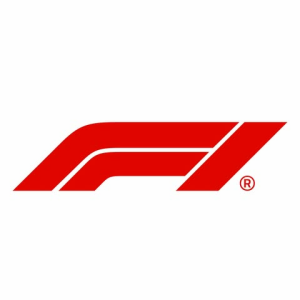22/06/2025 16:20
Michael Schumacher cruised to the 2002 F1 drivers' title, finishing
a considerable 67 points ahead of Rubens Barrichello. However, in
the opening rounds that year, Ferrari was not prepared to take any
chances. In particular, in the Austrian Grand Prix. The Red Bull
Ring – known as the A1 Ring at the time – hosted the sixth round of
the season, with Schumacher having won four of the opening five
races. It saw him enter Spielberg on 44 points, ahead of Williams'
Juan Pablo Montoya and Ralf Schumacher who had scored 23 and 20
points, respectively. With 10 points having been awarded to the
race winner, it was a semi-comfortable advantage for the Ferrari
star. Schumacher had built his lead alone, due to team-mate
Barrichello having only finished one of the first five grands prix.
Despite this, it was the Brazilian who claimed pole position in
Austria, by three-tenths of a second ahead of Ralf – Michael was
six-tenths slower than Barrichello in third. Barrichello had great
pace in Austria, proving that the Maranello-based outfit was right
to offer him a two-year contract extension. How the race unfolded
Whilst the race had a dramatic and controversial conclusion, the
bulk of the grand prix was settled at the start. Barrichello
retained the lead, whilst Michael overtook Ralf. Over the next 60
laps, the Ferrari duo escaped from the Williams pair, with Montoya
having overtaken his team-mate for third in the closing stages.
However, despite the Ferraris having cruised into the distance, its
pit wall remained busy. Second place would only score Schumacher
six points, meaning his advantage over Montoya would only increase
by two – third place was awarded four points. As a result, a bill
was pushed by team principal Jean Todt to technical director Ross
Brawn on the final lap. The drivers' radio was not broadcast, but a
clear message to swap positions was delivered. Entering the final
straight before crossing the finish line, Barrichello suddenly
slowed. It allowed Schumacher to claim the victory and score the
full 10 points. It resulted in outrage. FIA slam Ferrari It was a
huge embarrassment for Ferrari, with deafening boos having been
heard as both Scuderia drivers jumped out of their cars. The
disgust at the Italian outfit's decision quickly started to
circulate. "This was a very wrong choice," former driver Gerhard
Berger said after the race. "Poor Rubens has very few chances to
really fight with Michael and today he was simply better. I don't
understand this choice at all." Renault team principal Flavio
Briatore called it "a huge shame," whilst two-time F1 champion
Emerson Fittipaldi argued that Barrichello should never have given
up the win. Barrichello himself made it clear after the race that
he had no choice but to relinquish the win. "What should I have
done?" questioned Barrichello. "I have in my contract that I have
to follow team orders. If I don't listen now... I am just starting
a new contract period. "People ask me why I don't go to a team
that does respect me, and it's simple: such a team can give me a
winning car." Years later, Barrichello hinted that the team
threatened something "that made me rethink my whole life."
Remarkably, Schumacher was one of the most upset individuals by the
situation, and refused to stand on top of the podium. He pushed his
team-mate to the top spot and handed him the winner's trophy. In
the post-race press conference, the German stressed that
Barrichello was the real winner and revealed he was trying to still
finish behind him. Given Schumacher won the title by 67 points, the
Ferrari team orders were never needed to secure the title. The FIA
also spoke out against Ferrari's actions after the race, and
stated: "It is not acceptable that there is an agreement that gets
in the way of a race and cannot be accounted for by a team." For
the following season until 2010, team orders were banned by the FIA
until another rule change was required, once again due to a Ferrari
incident. Later in the 2002 season, Schumacher slowed in the United
States to hand Barrichello victory.



